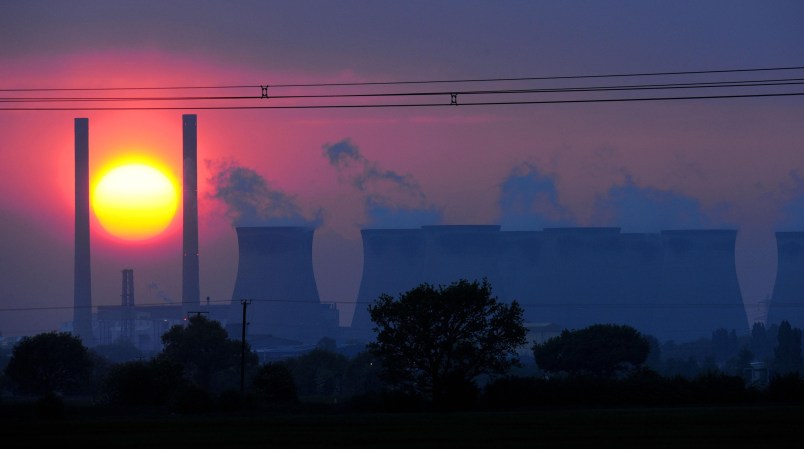The Associated Press took a stance on climate change on Tuesday and announced a policy that mandates stronger descriptions of people who doubt global warming is real: “those who reject mainstream climate science.”
Because the AP’s writing style is commonly used by newspapers and other news outlets nationwide, the decision could have a significant impact on the way climate change is discussed. The organization published a memo from three editors about the decision.
“We are adding a brief description of those who don’t accept climate science or dispute the world is warming from man-made forces,” the memo said. “Our guidance is to use, ‘climate change doubters’ or ‘those who reject mainstream climate science’ and to avoid the use of, ‘skeptics’ or ‘deniers.'”
The AP is constantly changing and updating to “reflect language usage and accuracy.” It changed its style in 2013 when it dropped “illegal immigrant” and opted for phrases that included, “living in or entering a country illegally.”
The memo provided some background and explanation of the change, and included the lengthy “AP Stylebook” entry for global warming:
The terms global warming and climate change can be used interchangeably. Climate change is more accurate scientifically to describe the various effects of greenhouse gases on the world because it includes extreme weather, storms and changes in rainfall patterns, ocean acidification and sea level. But global warming as a term is more common and understandable to the public.
Though some public officials and laymen and only a few climate scientists disagree, the world’s scientific organizations say that the world’s climate is changing because of the buildup of heat-trapping gases, especially carbon dioxide, from the burning of coal, oil and gas. This is supported by more than 90 percent of the peer-reviewed scientific literature.
In a joint publication in 2014, the U.S. National Academy of Sciences and the Royal Society of the United Kingdom stated: “Human activities – especially the burning of fossil fuels since the start of the Industrial Revolution – have increased atmospheric carbon dioxide concentrations by about 40 percent, with more than half the increase occurring since 1970. Since 1900, the global average surface temperature has increased by about 0.8 degrees Celsius (1.4 degrees Fahrenheit). This has been accompanied by warming of the ocean, a rise in sea level, a strong decline in Arctic sea ice, and many other associated climate effects. Much of this warming has occurred in the last four decades.
To describe those who don’t accept climate science or dispute the world is warming from man-made forces, use climate change doubters or those who reject mainstream climate science. Avoid use of skeptics or deniers.







It would take up a lot less space to just use a term like “knucklehead”.
I’m happy with “those who reject mainstream climate science”, but I don’t see the improvement of “climate change doubters” over “climate change deniers”. In fact, I kinda heard “climate change deniers” as having almost the same level of stench as “Holocaust denier”.
Climate Change “Truthers” would be a good one. " The Guardian" has used this before as well as “Climate Cranks”
Last May, though, the Guardian’s policy was to just leave the cranks and obdurates in the dust bin.
Yes, climate change - ACD - global warming is every bit the holocaust that was the Nazi holocaust, but this growing threat is a threat to all life and the entire planet, victimizing all life, no comparison to even WW II and the Holocaust. The nature of the ACD beast we’ve all created is more insidious, sneaky, wide-spread and takes no prisoners. ACD’s effect is now obvious literally everywhere on the planet / above the planet / inside the planet (in the oceans, pollution in aquifers, the earth poisoned by Monsanto / Bayer / etc.).
Agreed - “deniers” carries more force, since it implies a lack of thought, and a simple, absolutist refusal to accept facts.
I’m glad to see them steering clear of “skeptics.” I’m a skeptic, and proud of it. Skepticism is marked by a refusal to accept things on faith, and to demand solid evidence. When presented with the evidence, the skeptic is more than willing to alter his assessment of the truth. The climate change deniers are almost the complete antithesis of skeptics.